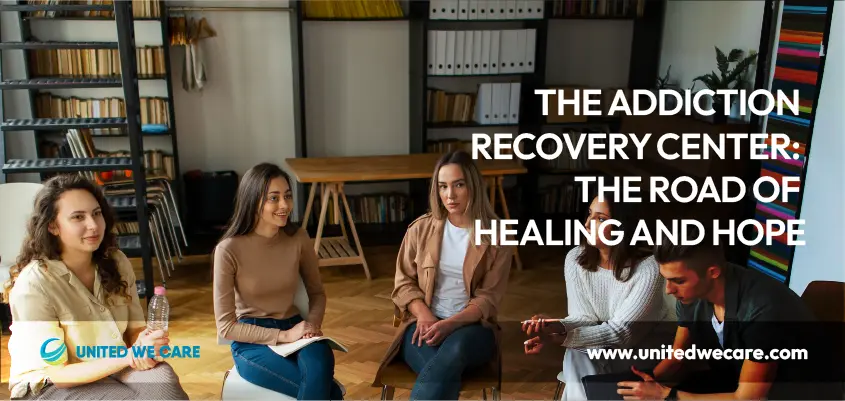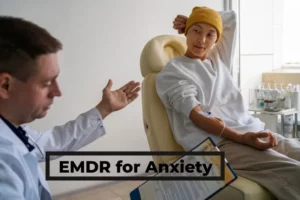Introduction:
Welcome to our addiction recovery facility, where people embark on a path of healing and hope. Here, a compassionate and dedicated team of professionals creates a haven for those seeking recovery. Through evidence-based therapies, personalized care plans, and unwavering support, they guide individuals toward a future. Our center provides a nurturing environment where individuals can address the causes of addiction, develop coping skills, and rebuild their lives. With an approach that focuses on emotional and mental well being our addiction recovery facility stands as a symbol of hope. We empower individuals to overcome challenges and embrace lasting sobriety.
What is an Addiction Recovery Facility?
An addiction recovery facility is a place designed to support individuals in their journey to overcome addiction and achieve lasting sobriety. These facilities offer a range of services and resources to address the nature of addiction.
- Personalized Treatment Plans: At an addiction recovery facility, individuals receive care from a team of professionals, including medical doctors, therapists, counselors, and support staff. These experts work collaboratively to create treatment plans that are tailored to meet each person’s needs.
- Creating a Supportive Environment: The addiction recovery center prioritizes providing a compassionate setting where individuals can detox from substances, engage in therapy sessions, and participate in various evidence-based treatments. These treatments encompass behavioral therapy, group therapy, individual counseling well, and holistic practices like yoga, meditation, and art therapy.
- Building Supportive Connections: Addiction recovery centers foster a sense of community through support groups and interactions with peers who have experienced challenges. These connections play a role in helping individuals develop a support network while learning from others’ experiences.
- Empowering Life Skills: The primary objective of an addiction recovery center is to empower individuals to conquer addiction address issues, and acquire the tools for leading a healthy and fulfilling life during their journey of recovery.
What Is The Role Of An Addiction Recovery Center?
- Providing Safety and Structure: Addiction recovery centers offer a structured environment for those seeking to overcome addiction.
- Utilizing Evidence-Based Approaches: They provide evidence-based treatments and therapies that comprehensively address the psychological and emotional aspects of addiction.
- Tailored Treatment Plans: Addiction recovery centers conduct assessments to create treatment plans for each individual’s unique needs.
- Incorporating Holistic Methods: Services encompass detoxification programs, counseling sessions, therapy sessions, and holistic approaches aimed at promoting well-being.
- Support Groups: The role of support groups in addiction recovery centers is to create a nurturing community where individuals can connect with others, share their experiences, gain insights, and offer each other mutual support.
- Aftercare Programs: Planning for aftercare is an aspect of addiction recovery centers. It involves educating individuals about addiction, teaching them skills to prevent relapse, helping them develop coping strategies, and guiding them toward making lifestyle choices. This knowledge and these tools are essential for individuals as they navigate life beyond treatment.
- Empowerment: In addition to providing a space for recovery, addiction recovery centers also focus on empowering individuals with the skills to overcome addiction and rebuild their lives. They offer resources, guidance, and ongoing support to ensure recovery and improved well-being.
How Exactly Can An Addiction Recovery Center Assist You?
- Detoxification: By offering detoxification services, they can help manage withdrawal symptoms during the stages of recovery while ensuring a safe transition into the next phase.
- Evidence-Based Treatment: These centers utilize evidence-based treatments such as therapies and counseling sessions that address the root causes of addiction. These approaches help individuals develop coping mechanisms to prevent relapse.
- Education: Education plays a role in these centers well. Individuals receive education about addiction. Acquire life skills training that equips them with tools for preventing relapse and making healthier decisions moving forward.
- Support Groups: Support groups within these centers provide a sense of community by fostering interactions among peers who understand the challenges faced during recovery. These groups offer support through shared experiences.
- Aftercare Programs: Aftercare programs offered by these centers aim to provide therapy sessions, regular support group meetings, and access to resources that promote sustained sobriety after formal treatment concludes.
- Holistic Approaches: Recovery centers for addiction provide support by addressing the psychological and social aspects of addiction.
- Customized Treatment Plans: These centers offer personalized treatment plans that are specifically designed to meet the needs of each individual.
- Therapy Sessions: Both individual and group therapy sessions are conducted to enhance self-awareness and personal growth and modify behavior patterns.
- Vocational Training and Educational Support: The inclusion of training and educational assistance helps individuals reintegrate into society successfully.
Addiction recovery centers play a role in assisting individuals in overcoming addiction, addressing issues, and establishing a strong foundation for a healthier and more fulfilling life during their recovery journey.
What Are the Advantages of an Addiction Recovery Center?
Addiction recovery centers provide a supportive environment that serves as a framework for individuals to focus on their journey toward recovery while establishing a base for long-term sobriety[3]:
- Access to a multidisciplinary team of addiction treatment professionals: Access to a diverse team of addiction treatment professionals, including medical doctors, therapists, counselors, and support staff who collaborate to deliver personalized care through tailored treatment plans.
- Evidence-based therapies: Evidence-based therapies such as behavioral therapy (CBT), dialectical behavior therapy (DBT), and motivational interviewing are utilized to address each person’s needs and challenges. These therapies promote healing and facilitate changes.
- Addiction recovery centers: Support and supervision are provided in addiction recovery centers to ensure the management of withdrawal symptoms and address any physical health issues related to addiction.
- Community and peer support: Community and peer support play a role in these centers, offering group therapy sessions, support groups, and experiential activities that foster a sense of connection, understanding, and mutual encouragement.
- Recognition and addressing: It is important to recognize and address feelings of isolation, shame, and stigma within a nonjudgmental environment. This allows individuals to share their experiences and find solace in a community of others who are facing struggles.
- Comprehensive Education and Life Skills Training: Comprehensive education and life skills training are also provided in these centers. This includes information on addiction, relapse prevention techniques, healthy coping mechanisms, and stress management strategies. Equipping individuals with this knowledge and providing them with the tools is essential for their long-term recovery.
- Opportunities for personal growth and self-discovery: Furthermore addiction recovery centers offer opportunities for growth and self discovery. This can involve exploring issues that contribute to addiction while simultaneously improving self-esteem. It aims to foster a sense of purpose and fulfillment in individual’s lives beyond their behaviors.
- Addiction recovery centers build a strong support network: An essential aspect of these centers is building a support network among individuals in recovery. Establishing lasting relationships during the treatment process ensures support after leaving the center.
- Addiction recovery centers on Empowerment: Finally, addiction recovery centers focus on empowerment. They encourage individuals to confront life challenges head-on by developing resilience and self-awareness as healthy coping strategies. This approach fosters growth while enabling individuals to thrive in their journey towards recovery.
- Offer transformation and the chance to build a healthier, more fulfilling life: We all try to stay in peace, so we want to build a healthier life, fulfilling our life with happiness.
Addiction recovery centers offer a pathway to transformation. The opportunity to create a more fulfilling life. Their services focus on addressing issues, rebuilding relationships, setting and achieving goals, and embracing a new identity beyond addiction.
What Does An Addiction Recovery Centre Provide?
- Safe withdrawal from substances with detoxification: Addiction recovery centers ensure that individuals have supervision and support during the detoxification process. This helps manage withdrawal symptoms in a comfortable manner.
- Therapy and counseling sessions for individuals, groups, and families: These centers offer therapy approaches to target the root causes of addiction, promote healing, enhance coping skills, improve communication within families, and strengthen relationships.
- Evidence-Based Treatment: Evidence-based therapies like cognitive behavioral therapy (CBT) and motivational interviewing. Addiction recovery centers implement methods that help individuals identify thought patterns, modify them positively, develop effective coping strategies, increase motivation for recovery, and foster long-term behavioral changes.
- Education: Education on addiction awareness, relapse prevention techniques, and life skills for maintaining sobriety. Recovery centers provide sessions that raise awareness about addiction-related topics while teaching relapse prevention strategies. Additionally, they equip individuals with practical life skills to overcome challenges during their journey towards maintaining sobriety.
- Comprehensive Services: Comprehensive services aim to support individuals in their pursuit of lasting recovery by addressing all aspects of addiction treatment.
- Support Groups: Support groups and peer support programs are valuable for connecting with others and building a sense of community. In these group therapy sessions individuals facing challenges can come together to share their experiences gain insights and offer each mutual encouragement and understanding.
- Holistic Services: To promote addiction, recovery centers often incorporate holistic services that focus on physical, emotional, and mental health. These may include practices like mindfulness, yoga, art therapy, and other activities that encourage self-expression, relaxation, and self-care.
- Relapse Prevention: After completing a recovery program, it’s important to have a plan in place for continued support and relapse prevention. Recovery centers work with individuals to develop aftercare plans that may include therapy sessions, recommendations for support groups, and access to community resources.
- Customized Treatment: Each person’s journey toward recovery is unique. That’s why recovery centers take the time to assess circumstances and create customized treatment plans tailored to their needs. These plans address not addiction issues but any mental health conditions individuals may be facing along with their personal goals.
- Continued Care: Throughout the recovery process, at addiction recovery centers, there is a team of professionals overseeing and managing care. These professionals provide attention while closely monitoring progress and addressing any medical concerns or complications that may arise.
- Support and resources for training and educational assistance: In some recovery centers, individuals are provided with help and support to acquire skills, pursue educational opportunities, and improve their chances of finding employment as they reintegrate into society.
- Guidance in transitioning to life after treatment: Recovery centers offer support and guidance to individuals as they make the transition back to their normal lives. They provide tools, resources, and strategies to ensure a sustainable reintegration.
- Access to community resources and support networks: Recovery centers collaborate with community organizations support groups and other resources. This collaboration ensures that individuals have access to support and connections within the community after leaving the treatment facility.
- Treatment for diagnosis: Recovery centers are well-equipped to address the needs of individuals who have both substance abuse issues and mental health conditions. They offer treatment that focuses on both areas simultaneously for a recovery.
- Family involvement programs: Recovery centers actively involve families in the treatment process. They provide family therapy sessions, educational materials, and support programs. These initiatives aim to help families understand addiction better and the relationships affected by it and create an environment for ongoing recovery.
24/7 support and supervision are provided in recovery centers to ensure the safety and well-being of individuals going through addiction recovery. These centers offer assistance, guidance and care during emergencies, challenges or moments of crisis throughout the recovery journey.
Conclusion:
Recovery centers play a role in providing support and services for individuals seeking to overcome addiction. They empower individuals by offering therapies, counseling, education, and holistic approaches to help them rebuild their lives. These centers foster a sense of community, provide personalized care, and equip individuals with the tools and resources for long-term sobriety.
In our effort towards wellness, platforms like United We Care amplify the support and resources available. Together, we can address addiction. Promote well-being and healing for all those who seek help.
REFERENCES
[1] “Substance abuse treatment facility Definition,” Law Insider. [Online]. Available: https://www.lawinsider.com/dictionary/substance-abuse-treatment-facility. [Accessed: 07-Jun-2023].
[2] “Why is it important to consider a Rehabilitation Centre,” Alpha Healing, 01-Jun-2017. [Online]. Available: https://alphahealingcenter.in/important-consider-rehabilitation-centre/. [Accessed: 07-Jun-2023].
[3] “[Solved] Which of the following are treatment offered by residential&,” Testbook. [Online]. Available: https://testbook.com/question-answer/which-of-the-following-are-treatment-offered-by-re–61c1ade7e48370870551625d. [Accessed: 07-Jun-2023].
[4] J. H. P. Minus and T. P. P. Minus, “The benefits of rehab,” Rehab Spot, 08-Apr-2019. [Online]. Available: https://www.rehabspot.com/treatment/before-begins/the-benefits-of-rehab/. [Accessed: 07-Jun-2023].
[5] Wikipedia contributors, “Drug rehabilitation,” Wikipedia, The Free Encyclopedia, 14-Jun-2023. [Online]. Available: https://en.wikipedia.org/w/index.php?title=Drug_rehabilitation&oldid=1160091305.
[6] Marketing Assistant, “Rehab hospitals and what they provide,” Accel Rehabilitation Hospital of Plano, 21-Oct-2020. [Online]. Available: https://accelrehab.com/rehab-hospitals-and-what-they-provide/. [Accessed: 20-Jun-2023].










